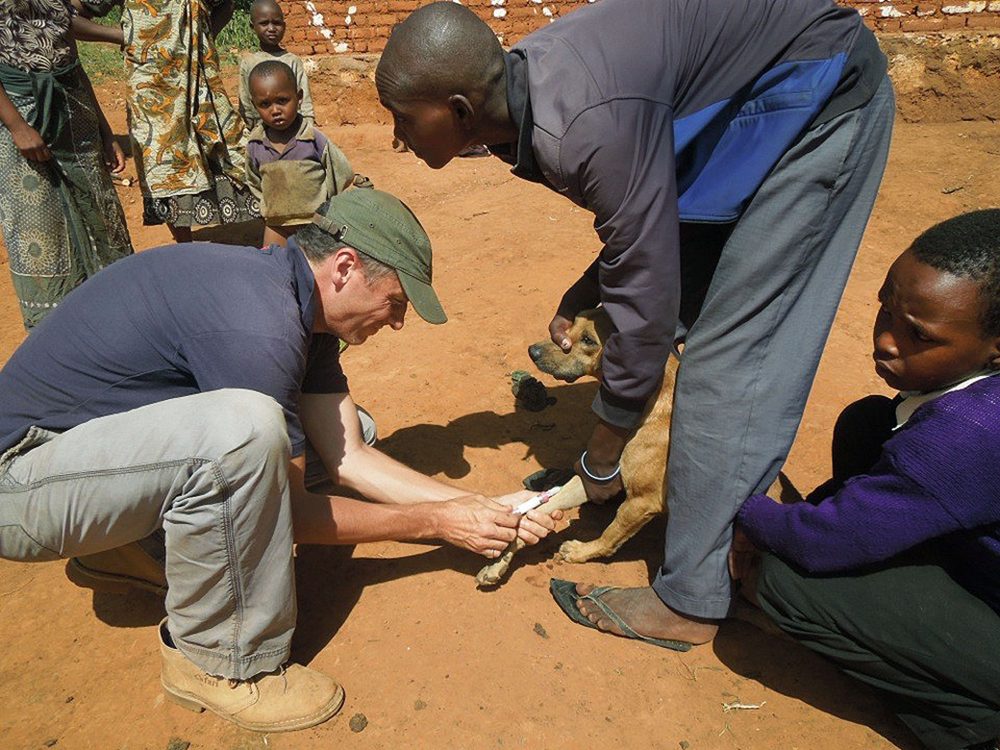Rabies
Rabies is a zoonosis (a disease that is transmitted from animals to humans) that is caused by a virus.
It is known to be present in more than 150 countries and territories of all continents except Antarctica. About 60 000 people die of rabies every year, mostly in Asia and Africa.
Rabies virus infects domestic and wild animals and is spread to people through close contact with infected animals’ saliva via bites or scratches.
The main route of rabies transmission to humans is the bite of rabid dogs. Nearly half of those bitten by suspect rabid animals are children aged under 15 years.
How to avoid being bitten or scratched
All mammals (including monkeys) can carry rabies, but it’s most common in:
- dogs
- bats
- raccoons
- foxes
- jackals
- cats
- mongooses
They can spread the infection if they bite or scratch you or, in rare cases, if they lick an open wound or their saliva gets into your mouth or eyes.
What to do if you’ve been bitten or scratched
If you’ve been bitten or scratched by an animal in an area with a risk of rabies:
- immediately clean the wound with running water and soap for several minutes
- disinfect the wound with an alcohol- or iodine-based disinfectant and apply a simple dressing, if possible
- go to the nearest medical centre, hospital or GP surgery as soon as possible and explain that you’ve been bitten or scratched
Treatment after a bite or scratch
If you’ve been bitten, scratched or licked by an animal that might have rabies, you may need specialist medical treatment to stop you getting rabies. This is called post-exposure treatment.
Post-exposure treatment involves:
- cleaning and disinfecting the wound
- a course of the rabies vaccine – you’ll need to have 4 doses over a month if you have not been vaccinated against rabies before, or 2 doses a few days apart if you have
- in some cases, a medicine called immunoglobulin is given into and around the wound – this provides immediate but short-term protection if there’s a significant chance you’ve been infected
The post-exposure treatment you need may be slightly different if you have a weakened immune system.
Symptoms of rabies
Without treatment, the symptoms of rabies will usually develop after 3 to 12 weeks, although they can start sooner or much later than this.
The first symptoms can include:
- a high temperature (fever) of 38C or above
- a headache
- feeling anxious or generally unwell
- in some cases, discomfort at the site of the bite
Other symptoms appear a few days later, such as:
- confusion or aggressive behaviour
- seeing or hearing things (hallucinations)
- producing lots of saliva or frothing at the mouth
- muscle spasms
- difficulty swallowing and breathing
- inability to move (paralysis)
Once symptoms appear, rabies is almost always fatal. In these cases, treatment will focus on making the person as comfortable as possible.


